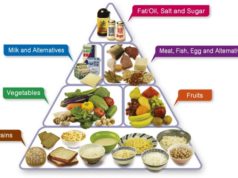What do dietitian do – What do dietitians do sets the stage for this enthralling narrative, offering readers a glimpse into a profession that goes beyond simply telling people what to eat. Dietitians are highly trained professionals who use their expertise in nutrition science to help individuals and communities achieve optimal health and well-being. They are not just food police; they are educators, counselors, and advocates, working tirelessly to improve the lives of their clients.
Their work encompasses a wide range of activities, from conducting comprehensive nutrition assessments to developing personalized meal plans and providing evidence-based dietary advice. Dietitians play a vital role in promoting healthy eating habits, preventing chronic diseases, and ensuring food security for all.
The Role of a Dietitian
Registered dietitians (RDs) are essential healthcare professionals who play a crucial role in promoting health and well-being through food and nutrition. Their expertise extends beyond simply providing dietary advice; they are trained to assess individual needs, develop personalized nutrition plans, and educate clients on making informed food choices.
The Responsibilities of a Registered Dietitian
RDs are responsible for a wide range of tasks, including:
- Conducting nutritional assessments: RDs gather information about a client’s health history, lifestyle, and dietary habits to understand their nutritional needs and identify any potential deficiencies or concerns.
- Developing personalized nutrition plans: Based on the assessment, RDs create tailored plans that address specific health goals, such as weight management, disease prevention, or recovery from illness.
- Providing nutrition education and counseling: RDs educate clients on the importance of balanced eating, healthy food choices, and portion control. They also offer guidance on meal planning, grocery shopping, and cooking techniques.
- Monitoring and evaluating progress: RDs regularly track their clients’ progress, making adjustments to their plans as needed to ensure optimal outcomes.
- Collaborating with other healthcare professionals: RDs work closely with physicians, nurses, and other specialists to ensure that nutrition is integrated into overall patient care.
The Difference Between a Dietitian and a Nutritionist
While the terms “dietitian” and “nutritionist” are often used interchangeably, there is a key distinction:
Registered dietitians (RDs) are required to have a bachelor’s degree in nutrition or a related field, complete an accredited internship, and pass a national exam.
Nutritionists, on the other hand, may have a wide range of educational backgrounds and may not be required to meet specific certification standards. While some nutritionists may have valuable knowledge and experience, it’s important to note that only RDs are legally recognized as qualified nutrition experts.
Educational Requirements and Certifications
To become a registered dietitian, aspiring professionals must:
- Earn a bachelor’s degree: This degree should be in nutrition, dietetics, or a related field from an accredited university.
- Complete an accredited internship: This internship typically lasts for 1,200 hours and provides hands-on experience in various settings, such as hospitals, clinics, and community centers.
- Pass the national registration exam: This exam, administered by the Commission on Dietetic Registration (CDR), assesses knowledge and skills in nutrition, food science, and dietetic practice.
Once an individual has successfully completed these steps, they are eligible to become a registered dietitian (RD) and use the credential “RD” after their name.
Work Settings for Dietitians
Dietitians work in a variety of settings, including:
- Hospitals and clinics: RDs in these settings provide nutrition counseling to patients with a range of conditions, such as diabetes, heart disease, and cancer.
- Schools: School dietitians are responsible for developing and implementing nutrition programs for students, promoting healthy eating habits, and educating staff on nutrition principles.
- Community centers: RDs in community settings offer nutrition education programs, conduct cooking demonstrations, and provide counseling to individuals and families.
- Private practice: Some RDs establish their own private practices, providing personalized nutrition counseling and consultations to clients.
- Food and beverage companies: RDs in the food industry are involved in product development, research, and marketing, ensuring that products meet nutritional guidelines and consumer needs.
Nutrition Assessment and Counseling
A comprehensive nutrition assessment is the cornerstone of effective nutrition counseling. It involves gathering detailed information about a client’s dietary habits, health status, lifestyle, and personal goals. This information helps dietitians develop personalized nutrition plans that are tailored to each individual’s unique needs and circumstances.
Dietary Analysis Tools and Techniques
Dietitians utilize various tools and techniques to analyze a client’s dietary intake. These methods provide insights into their current eating patterns, identify potential areas for improvement, and guide the development of personalized recommendations.
- Food Diaries: Clients are asked to record everything they eat and drink over a specified period, typically 3 to 7 days. This method provides a detailed account of their usual food intake, including portion sizes and meal timings.
- 24-Hour Recalls: Clients are asked to recall everything they ate and drank in the previous 24 hours. This method is often used as a quick assessment tool and can be helpful for identifying trends in food choices.
- Food Frequency Questionnaires: These questionnaires ask clients about their usual intake of specific food groups or individual foods over a specified period, such as the past month or year. This method is useful for identifying patterns in food consumption over time.
Developing Personalized Nutrition Plans
Based on the information gathered during the nutrition assessment, dietitians develop personalized nutrition plans that address the client’s individual needs and goals. These plans may focus on:
- Weight Management: Tailoring calorie intake and physical activity levels to achieve weight loss, maintenance, or gain.
- Chronic Disease Management: Modifying dietary patterns to manage conditions such as diabetes, heart disease, and kidney disease.
- Food Allergies and Intolerances: Developing safe and nutritious meal plans that avoid specific foods.
- Sports Nutrition: Optimizing dietary intake to support athletic performance and recovery.
Communication Skills and Strategies, What do dietitian do
Effective communication is crucial for successful nutrition counseling. Dietitians use various strategies to build rapport with clients, establish trust, and promote behavior change.
- Active Listening: Dietitians pay close attention to clients’ concerns, questions, and perspectives. They use verbal and nonverbal cues to demonstrate empathy and understanding.
- Motivational Interviewing: This technique encourages clients to identify their own reasons for change and develop their own strategies for achieving their goals. It emphasizes collaboration and respect for client autonomy.
- Goal Setting: Dietitians work with clients to set realistic and achievable goals that are tailored to their individual needs and preferences.
- Providing Education and Resources: Dietitians share evidence-based information about nutrition, food choices, and healthy lifestyle habits. They also provide clients with resources such as recipes, meal planning tools, and community support groups.
Food and Nutrition Education: What Do Dietitian Do

Dietitians play a crucial role in educating individuals and communities about nutrition, promoting healthy eating habits, and reducing the risk of chronic diseases. They use a variety of methods to convey essential nutrition information and empower people to make informed food choices.
Methods of Nutrition Education
Dietitians employ a diverse range of methods to effectively educate individuals and communities about nutrition. These methods cater to different learning styles and preferences, ensuring that information is accessible and engaging.
- Individualized Counseling: Dietitians provide personalized guidance and support to individuals based on their specific needs, goals, and preferences. They assess dietary habits, identify areas for improvement, and develop customized meal plans and strategies.
- Group Workshops and Classes: These interactive sessions bring together individuals with shared interests, such as weight management, heart health, or diabetes prevention. Dietitians lead discussions, provide practical tips, and answer questions, fostering a supportive learning environment.
- Community Outreach Programs: Dietitians engage with diverse communities through public events, health fairs, and school programs. They offer nutrition education, cooking demonstrations, and resources, promoting healthy eating habits within the community.
- Public Speaking and Presentations: Dietitians deliver presentations at conferences, schools, and community organizations, sharing their expertise on various nutrition topics. They tailor their presentations to the audience, using engaging visuals and real-life examples.
- Online Resources and Social Media: Dietitians utilize websites, blogs, social media platforms, and mobile apps to disseminate nutrition information and connect with individuals. They create engaging content, share recipes, and answer questions, fostering a virtual community of health-conscious individuals.
Importance of Promoting Healthy Eating Habits
Promoting healthy eating habits is essential for preventing chronic diseases and improving overall well-being. Dietitians play a vital role in empowering individuals and communities to adopt healthy dietary practices.
- Reducing Chronic Disease Risk: Adopting a healthy diet can significantly reduce the risk of developing chronic diseases such as heart disease, stroke, type 2 diabetes, and certain types of cancer.
- Improving Overall Health: A balanced diet provides the essential nutrients the body needs to function optimally. It can enhance energy levels, improve cognitive function, strengthen the immune system, and promote healthy skin and hair.
- Weight Management: Making informed food choices and controlling portion sizes can help individuals manage their weight effectively. This can reduce the risk of obesity-related health problems.
- Enhanced Quality of Life: A healthy diet can contribute to a better quality of life by promoting physical and mental well-being. It can increase energy levels, improve sleep quality, and reduce stress.
Examples of Educational Programs and Resources
Dietitians develop and utilize a wide range of educational programs and resources to promote healthy eating habits and improve nutrition knowledge.
- MyPlate: Developed by the United States Department of Agriculture (USDA), MyPlate is a visual guide that emphasizes a balanced diet with fruits, vegetables, grains, protein foods, and dairy. It provides practical tips for building a healthy plate at each meal.
- Dietary Guidelines for Americans: These guidelines, updated every five years by the USDA and the Department of Health and Human Services, provide evidence-based recommendations for healthy eating patterns for all Americans. They offer guidance on food choices, portion sizes, and nutrient intake.
- National Nutrition Month: Celebrated annually in March, National Nutrition Month is a public health campaign that raises awareness about the importance of good nutrition. Dietitians organize events, share resources, and promote healthy eating habits throughout the month.
- Community Gardens: Dietitians often collaborate with community organizations to establish and maintain community gardens. These gardens provide access to fresh, nutritious produce, promoting healthy eating and community engagement.
- Cooking Classes and Demonstrations: Dietitians offer cooking classes and demonstrations, teaching individuals how to prepare healthy and delicious meals. They provide practical tips, recipes, and techniques to encourage healthy eating habits at home.
Role in Public Health Initiatives
Dietitians play a critical role in public health initiatives related to food security and nutrition, working to address food insecurity and promote healthy eating habits within communities.
- Food Security Programs: Dietitians contribute to programs that address food insecurity, such as food banks, soup kitchens, and community gardens. They provide nutrition education, develop healthy meal plans, and ensure that individuals have access to nutritious food.
- School Nutrition Programs: Dietitians work with school districts to implement healthy school meal programs, ensuring that students receive nutritious meals that meet their dietary needs. They also provide nutrition education in schools, promoting healthy eating habits among children and adolescents.
- Community Nutrition Programs: Dietitians develop and implement community nutrition programs that address specific health needs, such as diabetes prevention, heart health promotion, and weight management. They collaborate with community partners to provide nutrition education, counseling, and support services.
- Policy Advocacy: Dietitians advocate for policies that promote food security and healthy eating habits. They work with policymakers to create a food environment that supports healthy choices, such as policies that increase access to fresh produce, promote school nutrition programs, and regulate food marketing to children.
Emerging Trends in Dietetics
The field of dietetics is constantly evolving, driven by advancements in nutrition science, changing consumer preferences, and the growing impact of technology. Dietitians are adapting to these trends to provide the most effective and relevant nutrition care to their clients.
Technology’s Impact on Dietetics
Technology has revolutionized how dietitians interact with clients and deliver services.
- Telehealth: Telehealth platforms allow dietitians to provide remote consultations, making nutrition care more accessible to individuals in geographically remote areas or with busy schedules. This approach enhances convenience and affordability for clients while expanding the reach of dietetic services.
- Mobile Apps: Mobile apps are increasingly used by dietitians to track client progress, provide personalized meal plans, and offer educational resources. These apps can also facilitate communication between dietitians and clients, promoting ongoing engagement and support.
Emerging Trends in Nutrition Science
Nutrition science is constantly evolving, leading to new insights and recommendations.
- The Gut Microbiome: Research on the gut microbiome has revealed its significant role in overall health and disease prevention. Dietitians are incorporating this knowledge into their practice, recommending dietary strategies to promote a healthy gut microbiome, such as consuming fermented foods and prebiotics.
- Personalized Nutrition: Advances in genetics and nutrigenomics allow dietitians to tailor dietary recommendations based on an individual’s genetic makeup. This personalized approach can help optimize nutrient intake and reduce the risk of chronic diseases.
Adapting to Changing Consumer Preferences
Consumer preferences and food trends are constantly shifting, impacting the role of dietitians.
- Plant-Based Diets: The popularity of plant-based diets has increased, driven by concerns about animal welfare, environmental sustainability, and health benefits. Dietitians are increasingly providing counseling and meal planning services for individuals following plant-based diets, ensuring they meet their nutritional needs.
- Food Allergies and Intolerances: The prevalence of food allergies and intolerances is rising, requiring dietitians to have specialized knowledge in this area. They provide guidance on managing these conditions, developing safe and nutritious meal plans, and advocating for individuals with food sensitivities.
Promoting Sustainability and Ethical Food Choices
Dietitians play a vital role in promoting sustainable and ethical food choices.
- Sustainable Diets: Dietitians educate clients on the environmental impact of food production and consumption, encouraging them to choose sustainable options. This includes promoting locally sourced foods, reducing food waste, and minimizing the consumption of processed and imported foods.
- Ethical Food Systems: Dietitians advocate for fair and ethical food systems that prioritize animal welfare, worker rights, and environmental protection. They can advise clients on choosing products from companies that adhere to ethical standards and support sustainable agriculture practices.
Final Summary
In a world increasingly focused on health and wellness, the role of the dietitian has never been more crucial. As we navigate a complex food environment, their expertise and guidance are invaluable in helping us make informed choices that support our overall health and well-being. Whether you’re seeking to manage a specific health condition, improve your diet, or simply learn more about nutrition, a dietitian can be a valuable resource on your journey towards a healthier life.
FAQ
What is the difference between a dietitian and a nutritionist?
While both terms are often used interchangeably, a registered dietitian (RD) holds a bachelor’s degree in nutrition or a related field, has completed an accredited internship, and has passed a national exam. Nutritionists may have various backgrounds and levels of education, but they may not be legally required to have the same qualifications as an RD.
Can I become a dietitian online?
While online courses and resources can be helpful for learning about nutrition, becoming a registered dietitian requires a comprehensive education and internship program that typically involves in-person training.
How much does it cost to see a dietitian?
The cost of seeing a dietitian can vary depending on their location, experience, and the type of services they provide. Some insurance plans may cover the cost of dietitian visits, while others may require out-of-pocket payments. It’s always best to check with your insurance provider and the dietitian’s office to determine the cost.
Dietitians are experts in nutrition and can help you make informed choices about what you eat. One common area they address is protein intake, which is essential for muscle growth and repair. If you’re looking for ways to boost your protein intake, you can check out this helpful guide on how to add protein to diet.
Dietitians can provide personalized plans based on your individual needs and goals, so don’t hesitate to reach out if you have any questions about protein or other nutritional concerns.
Dietitians are experts in nutrition, helping people understand the food they eat and how it affects their health. They can advise on a variety of topics, including how to make healthy choices, manage weight, and even how to how to eliminate sugar from your diet.
While eliminating sugar might seem daunting, a dietitian can guide you through the process and create a personalized plan that fits your lifestyle and goals.
Dietitians are experts in nutrition and help people create healthy eating plans. They can provide guidance on everything from managing weight to preventing chronic diseases. If you’re looking for inspiration to create delicious and nutritious meals, check out these ideas for diet meals.
A dietitian can also help you personalize your meal plan to fit your individual needs and goals.
























